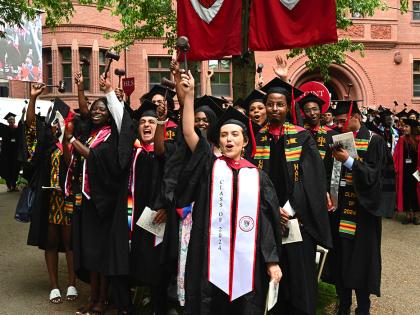" Ws. Gilbert and Arthur Sullivan both were famous in England well before they became collaborators. Gilbert had written 31 of his 75 plays, and Sullivan was doing nicely as a composer of serious music, as conductor of the Royal Philharmonic, as an organist, and as composer of what is said to have been the nineteenth century's best-selling song, "The Lost Chord" (not to mention "Onward, Christian Soldiers"). Gilbert and Sullivan first collaborated on Thespis, in 1871; the music is now lost. Four years later came the one-act Trial By Jury, used by Richard D'Oyly Carte as an after-piece to an Offenbach opera at the Royalty Theatre, which he was then managing. The collaborators' string of works, 14 in all, began in earnest in 1877 with The Sorcerer. "After the immensely successful Pinafore the next year," says Fredric W. Wilson, the Harvard Theatre Collection's curator and an authority on Gilbert and Sullivan, "the names of England's cleverist dramatist and versifier and its foremost composer would seldom be thought of apart from one another."
Wilson has mounted The Gilbert and Sullivan Operas, an exhibition at the Theatre Collection. It opened on November 22, the centennial of Sullivan's death, and will close on April 13, just after the centennial of D'Oyly Carte's on April 3. It offers a representative display of the collaboration, with posters, photographs, programs, clippings, sheet music, letters, and assorted memorabilia. Four well-known collectors in the field have lent material, among them John S. Wolfson '60 of New York City, who owns the manuscript scores of The Sorcerer and The Grand Duke, or, The Statutory Duel.
Wilson takes care to mark the critical contribution of the third partner, D'Oyly Carte, catalyst and impresario. He established the Savoy Theatre in London to stage Gilbert and Sullivan operas and formed a permanent company to perform them, selected and trained by the dramatist and composer. His contribution of entrepreneurial and managerial skills underlies the achievement--that "except for the plays of Shakespeare," as Wilson writes, "no other English stage works have been so often performed or are still so often played as the Gilbert and Sullivan operas."







